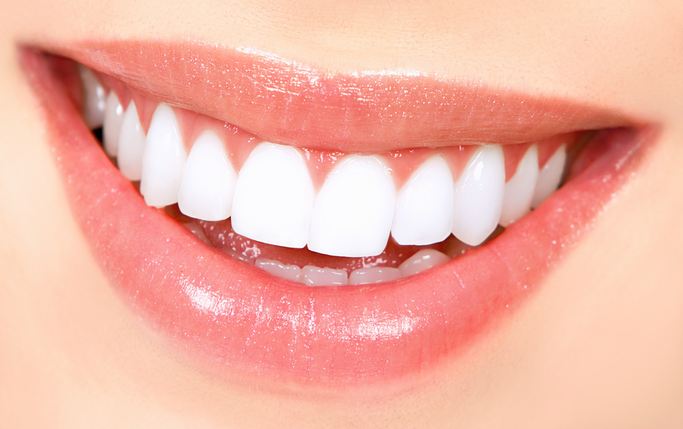
Taking care of your teeth and gums is about more than just brushing and flossing. What you eat plays a big role in keeping your mouth healthy too. Eating a balanced, nutritious diet helps protect your teeth from decay, fights gum disease, and keeps your smile strong for years to come.
Here are seven of the best foods to support healthy teeth and gums — and how they help maintain your oral health.
1. Fresh Fruits and Vegetables
Crunchy fruits and vegetables like apples, carrots, celery, and leafy greens are packed with vitamins, minerals, and fiber that your teeth and gums need.
Eating these foods does double duty: the fiber helps clean your teeth naturally by removing plaque and food particles, and the vitamins (especially vitamin C) keep your gums healthy and strong.
For example, apples contain malic acid, a natural substance that helps whiten teeth and fight stains. Leafy greens like spinach and kale are loaded with calcium and folic acid, which are essential for healthy gums.
2. Dairy Products
Milk, cheese, and yogurt aren’t just good for your bones—they’re excellent for your teeth too. These dairy foods are rich in calcium and phosphorus, which help build and maintain strong tooth enamel.
Yogurt also contains probiotics, beneficial bacteria that can balance the good and bad bacteria in your mouth, helping to prevent gum disease and tooth decay.
Cheese, in particular, helps increase saliva flow, which neutralizes acids in your mouth and protects against cavities.
3. Fatty Fish
Fish like salmon, tuna, and mackerel are high in omega-3 fatty acids, which have anti-inflammatory properties. These healthy fats can help reduce the risk of gum disease by lowering inflammation in the gums.
Omega-3s also help reduce plaque buildup, which can cause gum problems if not properly managed.
Including fatty fish in your diet regularly not only benefits your heart and brain health but also supports your gums.
4. Nuts and Seeds
Nuts and seeds are great snacks for your teeth because they provide essential vitamins and minerals like calcium, magnesium, and phosphorus.
They’re also crunchy, which means chewing them can help clean your teeth by removing plaque and food particles.
Almonds, for example, are a fantastic source of calcium and magnesium, both of which strengthen your teeth and protect against decay.
Sunflower seeds and pumpkin seeds also add to your oral health by supplying zinc and other nutrients that support gum health.
5. Water
Drinking plenty of water is one of the simplest ways to protect your teeth and gums. Water helps keep your mouth hydrated and washes away food particles and bacteria that can cause cavities and gum disease.
Saliva is vital for oral health, and staying hydrated helps your body produce enough saliva. Saliva not only cleans your mouth but also contains minerals that protect your teeth from decay.
If your tap water contains fluoride, that’s an added bonus, as fluoride helps strengthen your tooth enamel and prevent cavities.
6. Tea
Tea, especially green and black tea, is rich in antioxidants and fluoride. These compounds help fight bacteria in the mouth that cause gum disease and tooth decay.
Fluoride in tea strengthens your teeth and helps protect against cavities. Meanwhile, antioxidants can reduce inflammation and promote healthy gums.
Drinking unsweetened tea can be a healthy addition to your daily routine, but be mindful to avoid added sugars, which can harm your teeth.
7. Sugar-Free Gum
Chewing sugar-free gum after meals is a simple way to support your oral health. It stimulates saliva production, which helps wash away food particles and neutralize acids produced by bacteria.
More saliva means less chance for cavities and gum disease to develop. Some sugar-free gums also contain xylitol, a natural sweetener that can reduce bacteria growth in the mouth.
Chewing gum can be a handy oral health booster, especially when you can’t brush your teeth right away after eating.
How These Foods Work Together to Protect Your Oral Health
Eating these seven types of foods regularly helps keep your teeth and gums strong by fighting plaque, reducing bacteria, and lowering inflammation.
Fruits and vegetables provide natural cleaning power and essential vitamins. Dairy products strengthen enamel. Fatty fish fight gum inflammation. Nuts and seeds deliver minerals and natural abrasion to clean teeth. Water and saliva wash away harmful bacteria. Tea offers fluoride and antioxidants, while sugar-free gum boosts saliva flow to protect your mouth.
Together, they create a strong defense against common oral health problems.
Remember: Good Nutrition Complements Good Oral Hygiene
While these foods are great for your oral health, they’re not a replacement for brushing and flossing. To keep your mouth healthy, brush your teeth twice a day for two minutes each time, and floss once a day.
Regular dental check-ups are also essential to catch any issues early and keep your smile in top shape.
Final Thoughts
Healthy teeth and gums are the foundation of a confident smile and overall well-being. By including these seven foods in your diet, you can give your mouth the nutrients it needs to stay strong and fight disease.
Eating well, along with good dental care habits, will help you maintain a bright, healthy smile for life.
